Digital 52 2️⃣1️⃣ - Building the right team, handling inflation as a community, collaborating with other spaces locally: the story of Herd Co-Kitchen.

We hope you are ready for some food analogies around here! Today’s story will take you to yet another different recipe of coworking, one located in Vienna, Austria that’s targeted at… chefs and food professionals.
For Food Professionals - Market Education - Peer-to-Peer Learning
You can read the story of Herd on page 342 of "Around The World in 250 Coworking Spaces."
We’ve said it before, we’ll say it again: “Coworking is the same dish everyone cooks differently”. Speaking of cooking, today’s story will take you to Herd, a coworking kitchen located in Vienna, the capital city of Austria. We met Marko, one of the co/founders of Herd, back in 2018 while touring around Vienna. Herd was actually the very first co-kitchen we saw and reflecting on it, that particular recipe of coworking made all the sense in the world. Why so? Professional kitchen equipment is often very expensive for smaller structures like food trucks or food production companies. Having a shared kitchen that’s professionally equipped with all the latest technology not only saves costs but also allows many smaller businesses to thrive and focus on what matters most: building a sustainable business. But what brought Marko and his 2 co/founders to start a co-kitchen back in 2017? How did they survive the pandemic and what kind of changes have they noticed since the book came out? Those are just a few entrées to the entire interview that awaits you below!
➡️ A little refresher
Who’s behind the featured space?
Meet Marko Ertl, Matthias Kroisz, and David Weber, the trio behind Herd.
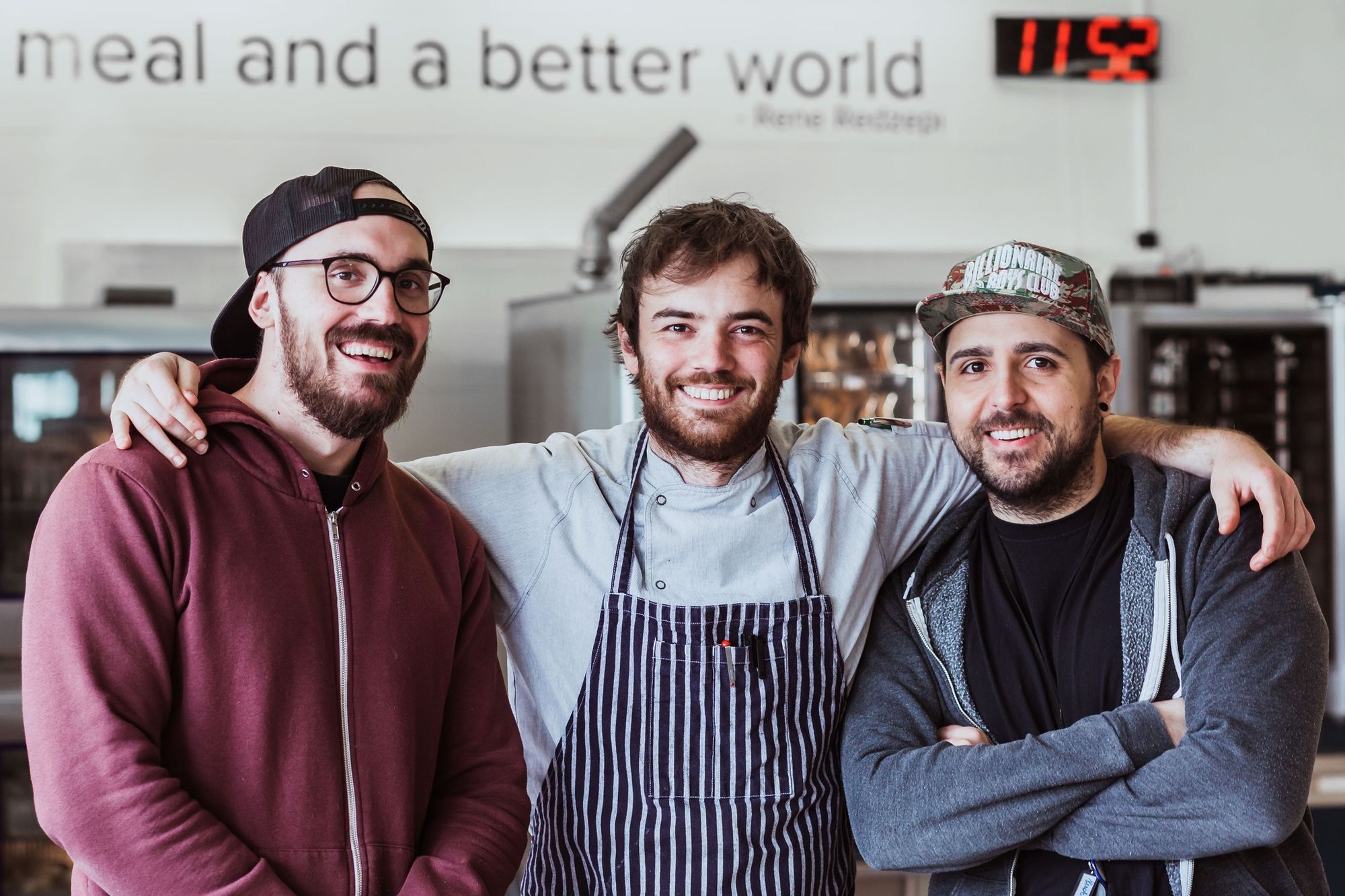
Matthias and Marko are long-time friends, and together, they founded Wrapstars (the first food truck in Austria at the time). They needed a chef, so they found David, who is now part of the ownership of Wrapstars and Herd. This was as a token of gratitude since his dedication and recipes were the reason Wrapstars could grow big enough that they needed to look for a new kitchen. This led to the founding of Herd Open Kitchen.
➡️ Key Figures
- Opening year: 2017
- Size when they started: 1,400 sqm (700 m² + around 700 m² cellar for storage)
- Size today: Same
➡️ A little tour around Herd
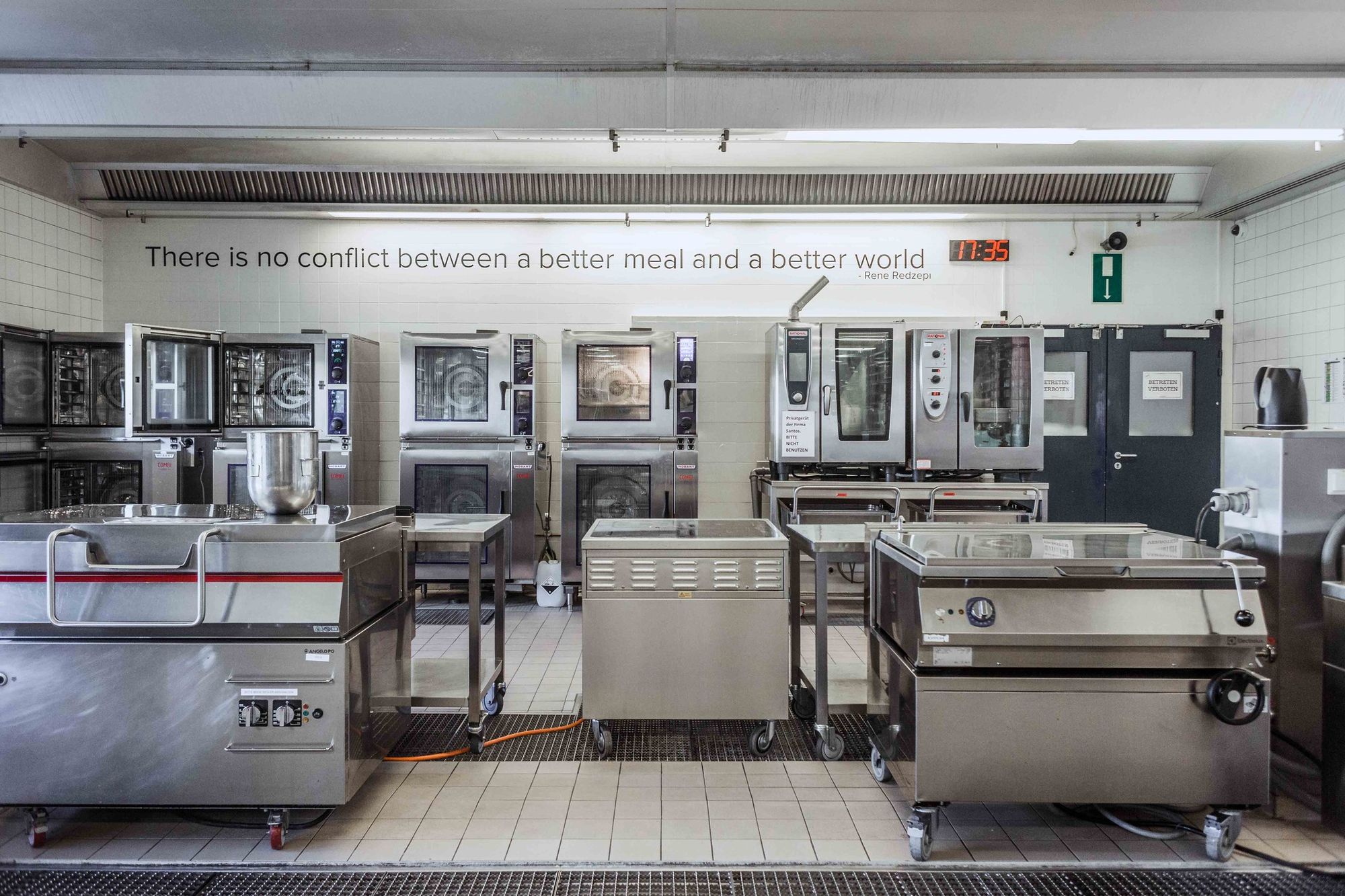
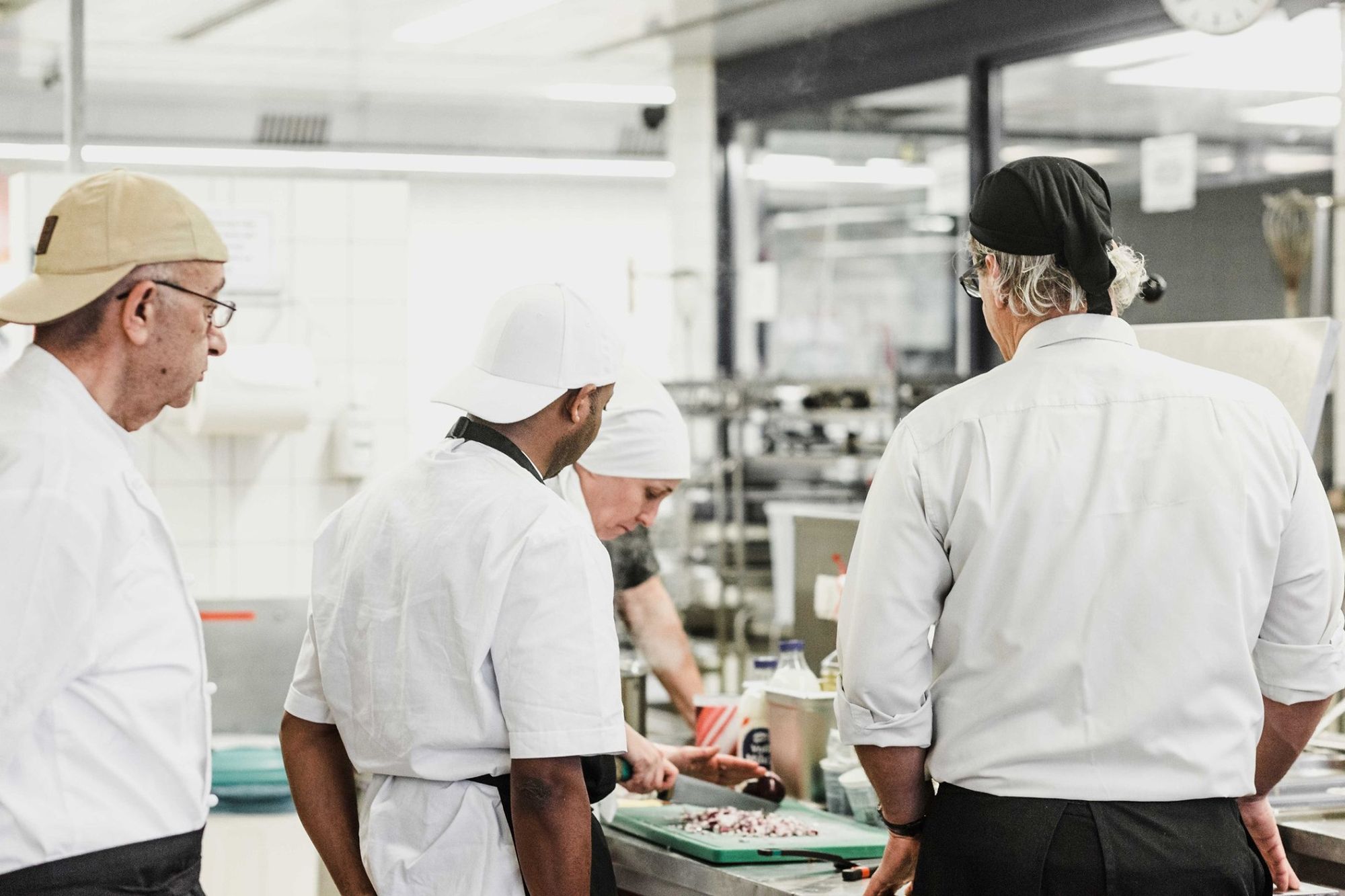
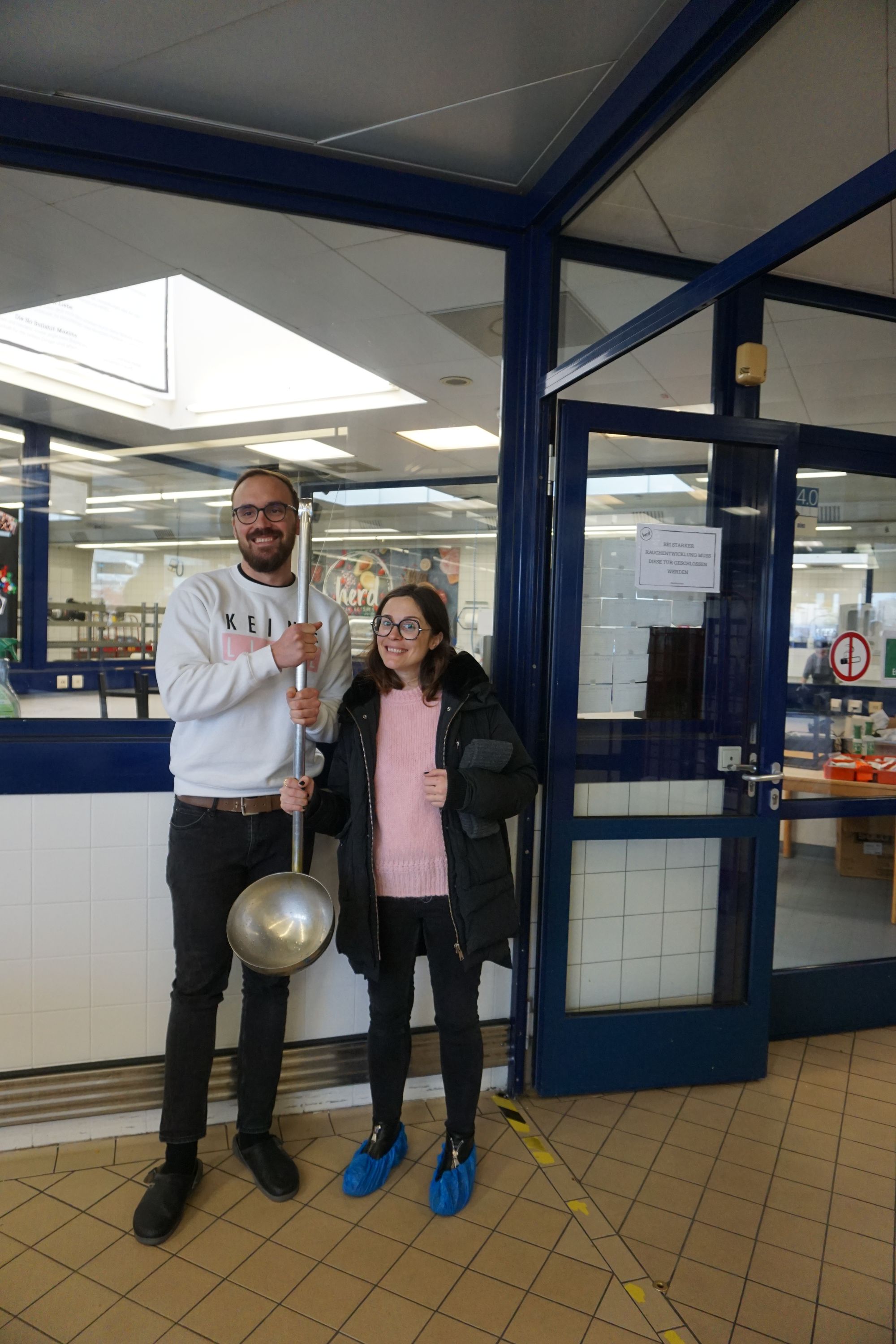
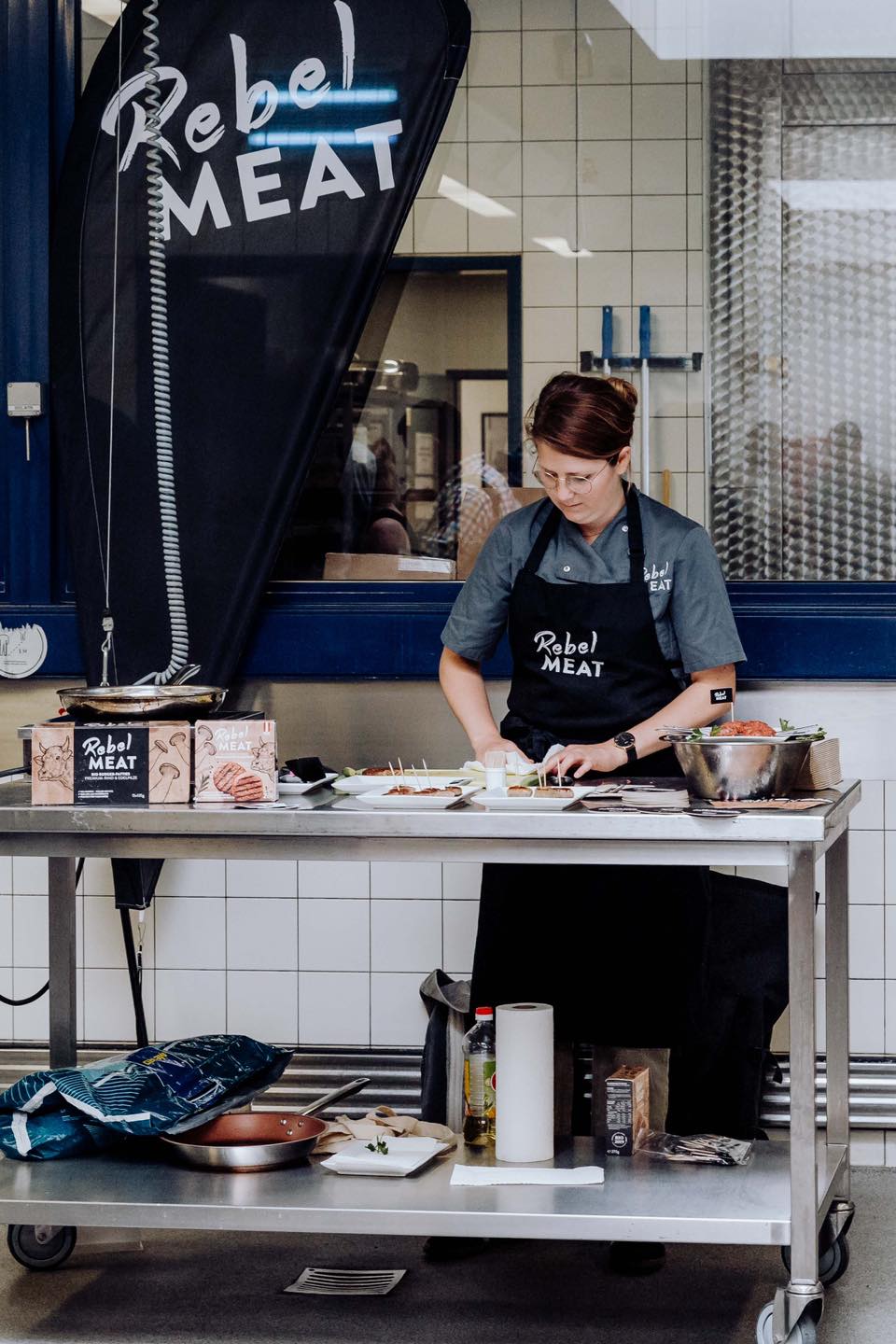
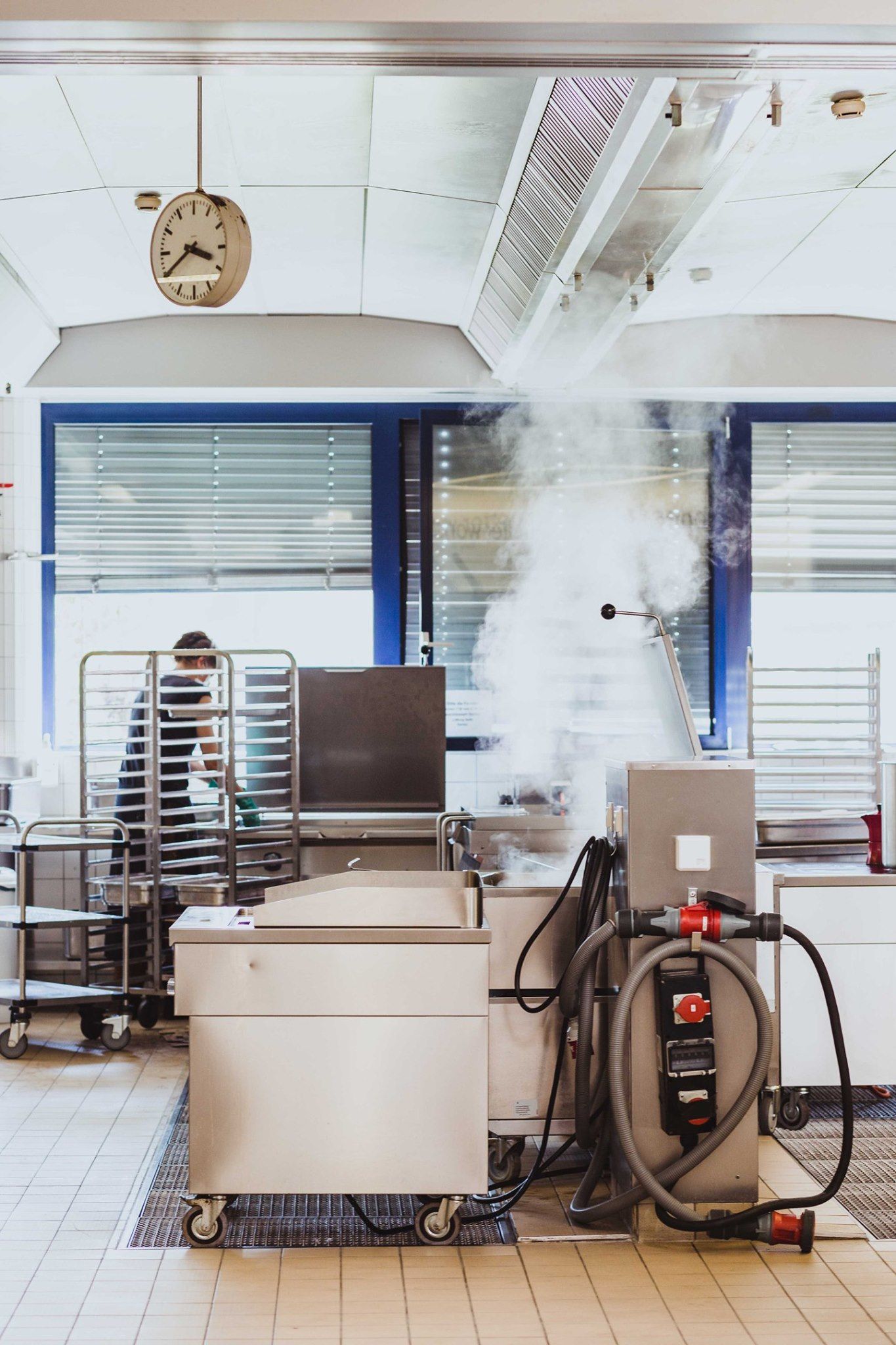
➡️ Behind-the-scenes
Things you didn't read in aw250cs
"We have only raised our prices twice since we opened in 2017, and both times were in the last 12 months."
Marko Ertl, Co/Foundet at Herd
➡️ Herd Today
Reconnecting with featured spaces always has a special flavor. Due to the pandemic, there are many spaces with whom, although close to us in distance, we still haven’t been able to reconnect in person. Herd is one of them. So when I wrote to Marko to ask if he would like to share what is currently happening at Herd, and heard back from him within a few hours with a “yes,” it felt really special. We focused our conversation on life at Herd since the pandemic. As you are about to discover, a lot has happened, and although there were many challenges, it also seems like all the hard work Marko and his team have put in for the last 6 years is paying off. From growing the team to launching new projects, but also adapting to the global economy and market demand, life at Herd these days surely seems as busy as a kitchen during service time.
💫 2 Major Changes
Besides the dish analogy, there is another saying we keep on repeating whenever we get the chance: “Great teams make great coworking spaces.” As you are about to read, finally finding the right community manager at Herd (after quite a few trials) has brought a lot of new opportunities to the space and its community.
The invasion of Ukraine by Russia brought to Europe and the world a wave called inflation, with ripple effects that we are just starting to feel. The biggest one so far? Energy costs. And for a coworking kitchen, which functions pretty much 24/7, the ripple effects are probably even bigger. So how did Marko and his team handle it? Keep reading to find out.
💬 I’d like to start by asking you: what’s new at Herd since September 2021?
(the month the book was released)
Undoubtedly, the Covid pandemic has ushered in significant changes in the way we operate, and among them is our successful recruitment of a competent kitchen and community manager. Filling this position was a daunting task as it demands a wide range of skills, from culinary expertise to excellent communication and organizational skills, technical know-how, and proficiency with software tools.
In the past, it was either a chef who lacked technical skills or someone great with computers who had no kitchen experience. But with our new hire, we have someone who possesses all the necessary skills, making it the most significant change that has positively impacted our operations' overall quality.
As a business running three companies, our time is limited, and with our new manager, we have been able to effect various improvements that make life easier for our members. For example, we now have a system that notifies people of the type of package they have received, among other small, yet useful conveniences. Our manager has implemented these changes, and as a result, our service quality has significantly improved.
Although the hiring process was challenging, with several trials and errors, we persisted, and our efforts eventually paid off. This is a position we have been struggling with since our founding in 2017, and finding the right person has been the most remarkable change we have experienced.
💬 How did you find him?
We made several attempts to find the right person for the job, but it was a challenge, and most of the people we hired were not a perfect fit for the position. In the long term, some even expressed not really liking the job. We revised the job description and experimented with different titles, but it was not until we found our current manager that things fell into place.
Our current manager is a young chef who is enthusiastic about learning and has the right combination of skills for the job. Although it took some experimentation and a bit of luck to find him, we are fortunate to have him on board.
He is primarily focused on providing not only space but also knowledge transfer and practical support to startups to help them become more successful. This is a crucial part of our mission, and we are glad to have someone who shares our vision and is committed to making it a reality.
💬 Is he continuing to be a chef?
Not really. He is eager to gain a better understanding of the business aspects required to get our various projects off the ground. Although he has a background as a classically trained chef and has previously worked in a large kitchen for a catering company, he lacks experience with founding food startups and the challenges they face.
He is currently learning about the different types of businesses and the issues they encounter, which is a valuable skill for our members. His expertise in safe production and following hygiene protocols is particularly useful as many of our members are not trained chefs.
💬 It’s been almost 3 years since Covid entered our lives and a bit more than a year since we can finally return to a life with restrictions. As you are a different kind of coworking space, what’s different about your community in a post covid world?
We had a lot of food service and catering businesses that weren't able to function during the pandemic, so we had to switch to more retail-focused and delivery projects. It went well, but we had to change the type of businesses that came to our space. Some of our members were considered system critical because they were delivering food to hospitals, so we never had the option to shut down the space. The impact on us wasn't too big, although there were safety measures that we had to comply with that made it more complicated and expensive.
It's difficult to talk about a post-COVID situation right now because of the ongoing energy crisis. Last year, there was a brief time when we felt a sense of movement and motivation as new people wanted to start again after the pandemic, but the situation changed with the Ukraine crisis and people are now hesitant to start a company. The reasons why people come to our space are different now, but we still offer all-in packages, which include energy costs. This provides safety and stability to our members and is often a reason why people come to us.
We have only raised our prices twice since we opened in 2017, and both times were in the last 12 months.
The first time was at the beginning of 2022, during the pandemic, and we raised it again at the beginning of this year. It's always uncomfortable to raise prices, but we strive to be very transparent and provide detailed explanations, and people generally understand our decisions.
We only had one minor issue with a member who didn't use the space much and had a subscription, but everyone else was completely understanding. Although it was stressful leading up to the decision, we found that once we communicated the changes, everyone was receptive and supportive.
💬 In the book, you told us that in the early days of Herd, it was challenging to “convince the traditional food industry and its Chefs” to come to Herd. How are things today?
It's always easier to convince people when they can come and see it in action. That's the main advantage we have. The issue is getting people here, as they usually have tight schedules and don't come unless they're interested. We always try to push for a kitchen tour, especially for big traditional companies interested in the space. It's hard to explain how it works because they always think in terms of private spaces and square meters they can have. If they ask for a 200 sqm kitchen, I can offer 40 sqm at our space, but it's probably enough. Getting them to visit is the first hurdle, but once they're here, they quickly understand how it can work.
The challenge is getting people to use the space in a way that doesn't require constant fixing of expensive equipment, as we have high energy costs. The equipment is robust, but with so many cooks working, things can break easily, especially if they have employees. When there's one company working and an employee breaks something, they know they're in trouble. But here, the equipment doesn't belong to the company, so they treat it badly, resulting in high maintenance costs.
💬 In that regard, do you ask members to pay a deposit? Is it primarily used for potential damages in the space or something else?
I don't think we have ever used the deposit for damage reasons. We usually use it for payment reasons. In a typical coworking space with software startups or other industries, I'm not sure how it works, but we have had quite a few cases of businesses going out of business and not being able to pay their bills. So, having a deposit is really important because you can lose a lot of cash flow in a short amount of time.
💬 I saw on your socials that you also work with coworking spaces from Vienna, Impact Hub, Talent Garden to name a few. Can you talk to us about the kind of collaboration you guys work on?
We collaborate with Talent Garden on an accelerator program with Metro and Modul University. Our goal is to help startups get from shelf to retail within six months. We work closely with Talent Garden on this program, and they also have a Tech Cafe that provides ongoing support. Whenever they need advice on finding new operators for catering and other services, they turn to us.
Thanks to our food and beverage team, we have many startups, alumni, and current members producing food and beverages in our space. These individuals are all part of our community, and they often hear about us through word of mouth. That's how we got in touch with Impact Hub and we're now involved in their food hack meetups. It's been great to exchange ideas and collaborate on projects. We're always happy to help each other out.
💬 Herd also has an in-house accelerator, can you tell me more about that? Who is it for? What’s its purpose?
The accelerator program we discussed earlier is located at Metro and Modul University and has been running since 2018. Originally, we started with Modul University and Metro, and Current Corp was involved in the last two rounds. Our goal is to help startups get into retail. While we used to run the program once a year, this year we haven't yet decided on how to proceed. We are still waiting for the report from Metro and Modul University since Modul University had to leave the accelerator due to internal changes that needed to be addressed before considering the next steps.
Rebel Meat, one of the most well-known Austrian startups, emerged from this accelerator program. They create meat products that are 50% fungi-based in order to reduce meat consumption. They joined the accelerator program with the goal of reducing meat consumption, but ultimately developed a product and brand that earned them a listing at Metro and other noteworthy accomplishments.
➡️ Reflections on building Herd
What has been your biggest learning out of bringing to life AND growing Herd?
Maybe it's a weird lesson, but sometimes things just fall into place. The start of Herd wasn't super planned out; we didn't have a concrete concept or a set location in mind. It was all a coincidence. We began with a representative food truck and eventually outgrew our rented kitchen space.
We were on the hunt for a new kitchen and had this idea of creating a shared space for all food trucks to produce in. We stumbled upon a larger space that we felt could work, and the idea of creating a shared kitchen here was born.
The landlord was super into the idea, and we even secured a main sponsor in Nature. It was all just a matter of coincidence and timing, and sometimes you just have to trust that things will work out.
As an entrepreneur, you have to be ready and have your stuff together, but it's also important to have faith in the journey and trust in the timing of things. The story of Herd is a great example of this.
💬 What would be your best advice to someone thinking about opening a coworking kitchen space?
Probably the advice that all working spaces and co-working spaces will give you is to try to build a community first or get contacts first so that when you open, you already have some members.
Don't do it the other way around because opening a shared kitchen or any kind of kitchen is very expensive. It's definitely more expensive than office space because the infrastructure, including electricity, ventilation, and devices, just costs a lot more. It's a huge investment, and I wouldn't do it without knowing that I can fill the space quickly because it just won't be viable.
💬 If you could chat with coworking operators now, what would you like to ask them?
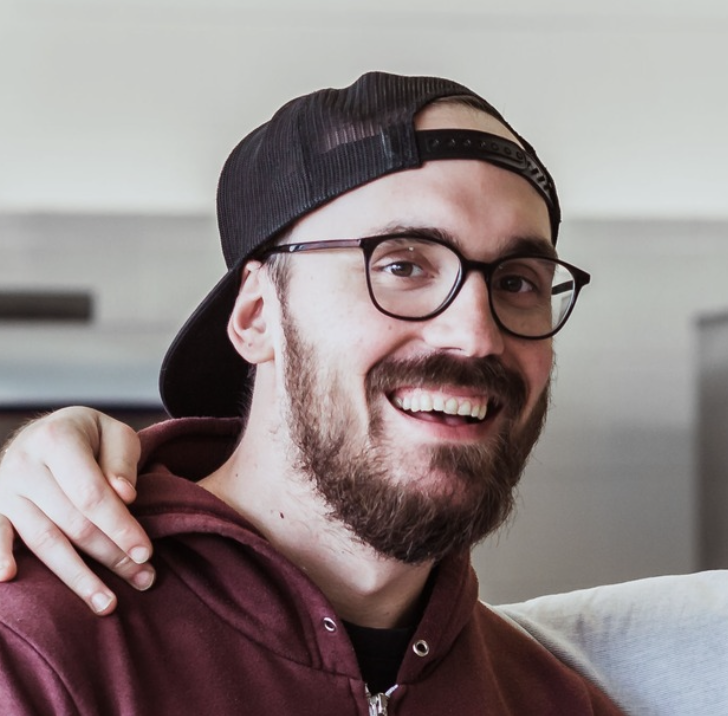
💬 And if you could chat with coworking members?
I think it's important to ask a basic question like 'How are you feeling?'. It's a difficult time to be a business owner and many are feeling financial stress. As a founder, it's hard to talk to others about the problems we face because they don't always understand. So, I believe it's important to have someone to talk to who is going through the same thing.
💬 Last but not least, what’s your biggest dream for Herd?
My vision for the future of our space is for it to become one of the most important food innovation spaces in Europe. It would be a place where people with food-related ideas, whether they are from a small team or a corporate setup, can come and find the infrastructure, mentorship, and resources they need to succeed. My hope is that it will be an affordable option for all. So our goal is to create an ecosystem that makes us affordable for the right people. That's something we want to achieve.
Join our Discord and come ask us questions about the story of Herd!

While you are here, our event for the month is now LIVE. What’s on the menu? Community in Coworking Spaces!
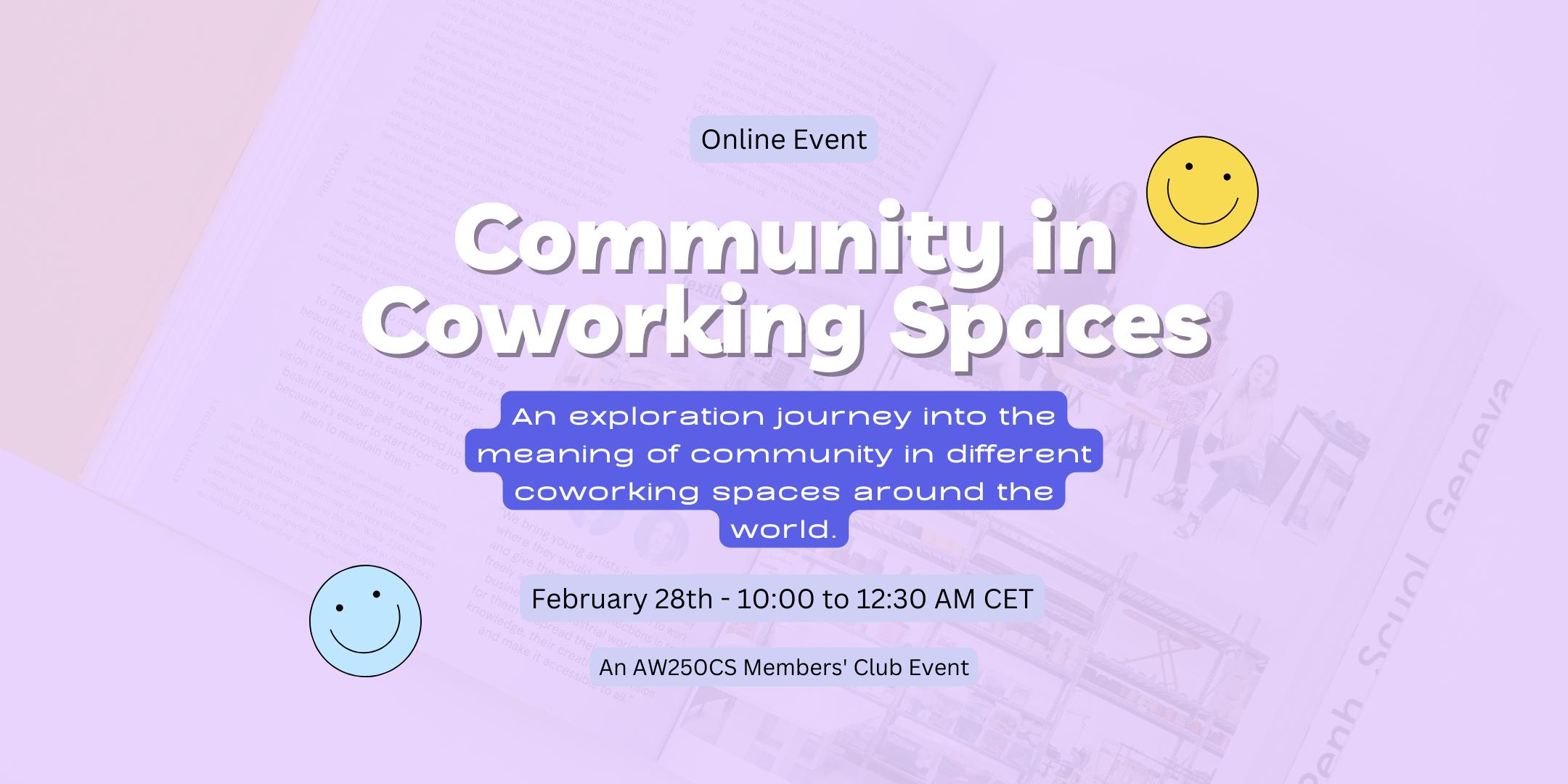
➡️ Why do we call coworking spaces "Community-Driven Spaces"?
➡️ How are collaborative workspaces around the world creating those community-oriented work environments?
➡️ Beyond creating them, how do they keep them engaging?
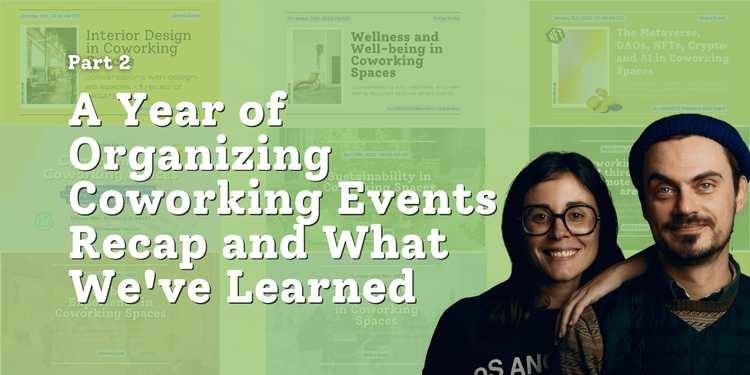




Member discussion